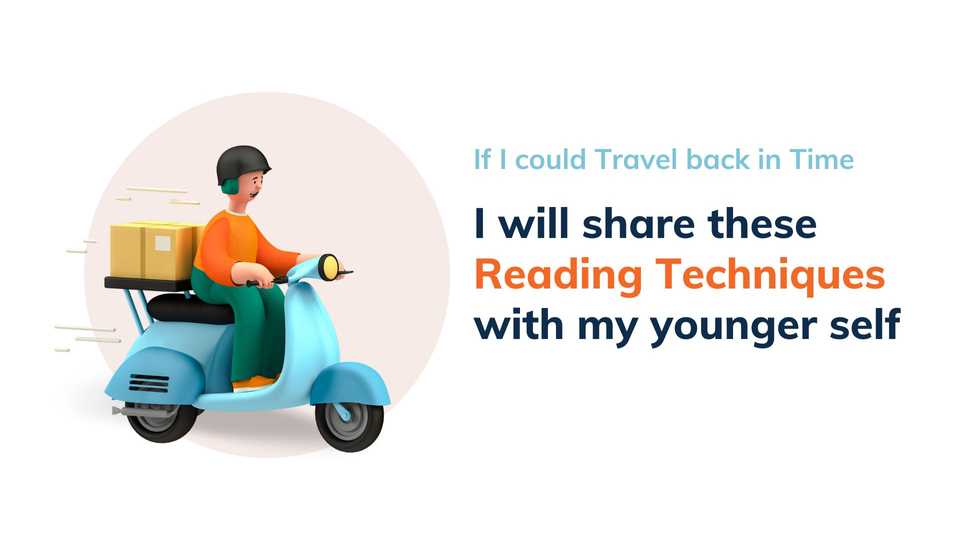Over the years, I learned, adapted, and improvised my reading techniques. The way I read now is contrastingly different from how I used to read before.
If I could travel back in time, I will share these techniques and insights with my younger self to become an effective reader faster. These techniques can help you be one as well.
Write, Scribble, and Dog-Ear the books
Without any doubt, this statement would have extremely offended my younger self. I used to consider books as prized possessions, marking and folding their pages are punishable offenses. Got disappointed even with the slightest damage. I even severed friendships for damaging my books, No kidding.
Several years forward, I now believe ‘Writing, Marking and Dog-earing’ a book is not a sin, but an act of showing true respect.
By Interacting with the books, it is no longer a one-way monologue. But a two-way communication between the author and the reader.
Here are my suggestions to interact with the book:
- Highlight the passages
- Note down thoughts and opinions next to the passages
- Question something that you don’t believe in
- Dog-ear the pages so you can revisit your favorite parts later
I call this interactive reading. This can significantly improve the reading experience, and enable us to connect with the content in a more depth and meaningful way.
Books-per-year metric is Nonsense
I used to have Reading Goals. Read X number of books in a calendar year. It used to be a driving force, and a way to compete with friends.
Now I strongly feel ‘Books-per-year’ is an inappropriate wrong metric to measure reading experience.
Though It pushed me to read more I seriously wish I hadn’t rushed through a lot of books, just for the sake of ticking the book counter. Instead, Focus should be on how the books improve thoughts and imagination.
Mindlessly sprinting through the pages, defeats the actual purpose of reading.
Each book (fiction or non-fiction) is written to serve the reader with a unique experience. Savor and enjoy them, instead of forcefully swallowing them.
You don’t have to complete all the books you start
My Younger version had to complete every book I started, whether I liked it or not.
My Present version understands, There’s no Ironclad rule that states we need to finish every book we start.
All books are not meant for everyone. There can be several reasons for it.
If a book doesn’t work out, feel free to move on to something that works. You don’t have to put yourself through pain to finish the book.
An author may have contradictory ideas to you, but that should not be the sole reason to skip the book. That takes us to the next wisdom:
No need to agree with everything a Book says
This is the most important piece of information that I would like to give my younger self.
A reader doesn’t have to agree with everything the author says.
A Thirukural couplet emphasizes this idea — “Whoever may present information, discerning its truth is real wisdom”.
We may not always align with the author’s perspective, and it is perfectly fine.
Only the ideas that make sense to our rational brains can be taken.
Read a book twice
I will definitely recommend reading books twice and following this technique.
Read interactively for the first time. Highlight passages and core ideas. Write down questions, thoughts, and opinions. Note topics that need further exploration.
The second time, only go through the highlighted passages and writings. These highlights can be filtered and built to create valuable notes.
These notes can be digital or physical. These notes are real treasures and immensely valuable ideas. Organize them in a way that the ideas are readily available and handy, so great value can be extracted from them.
If you find this article useful and would love to read more of my ideas, consider Following me and subscribing to my Newsletter below.
